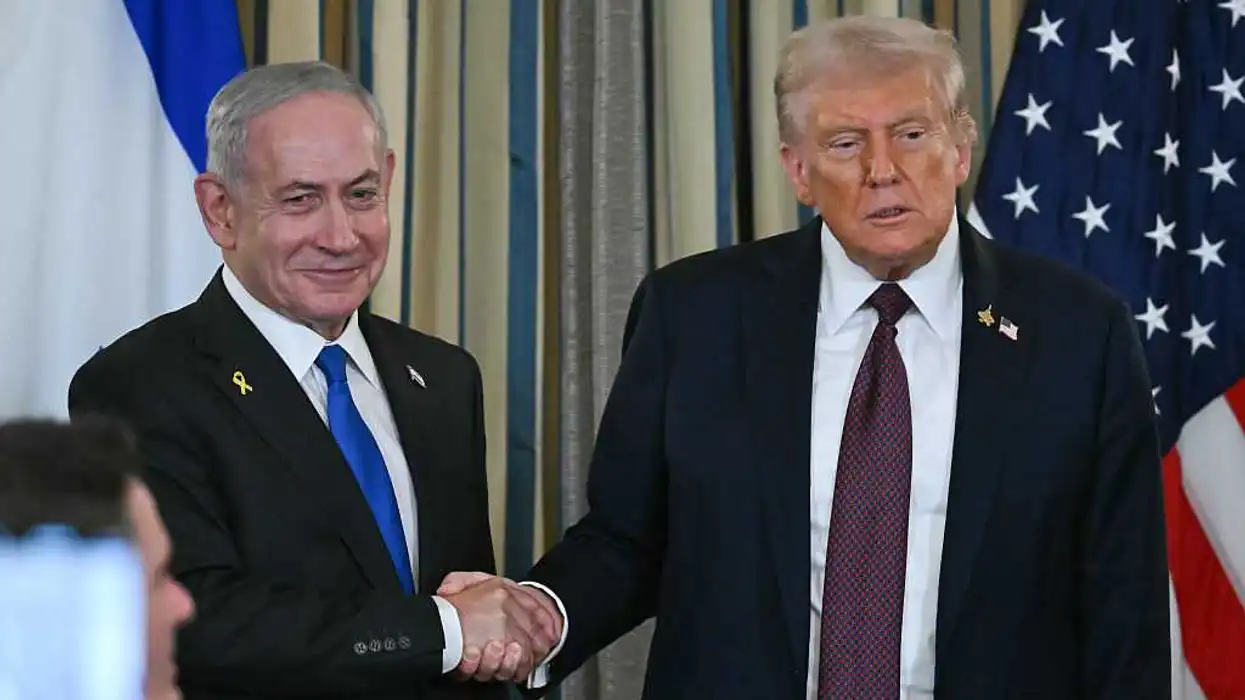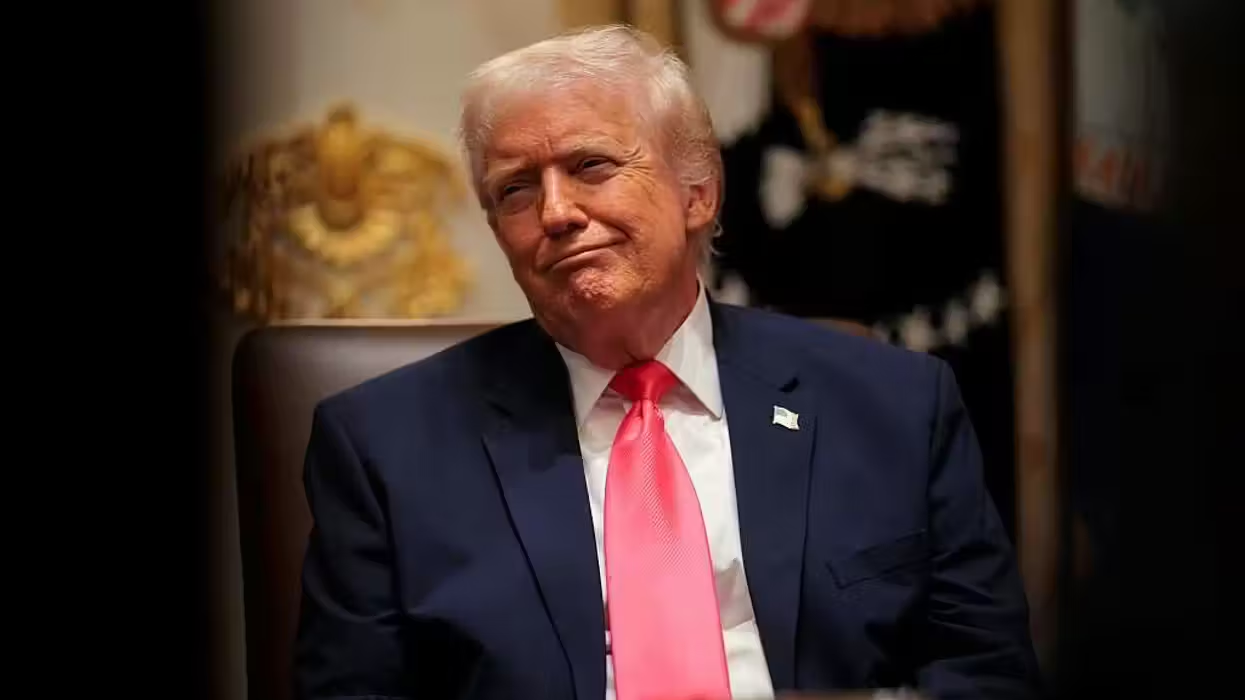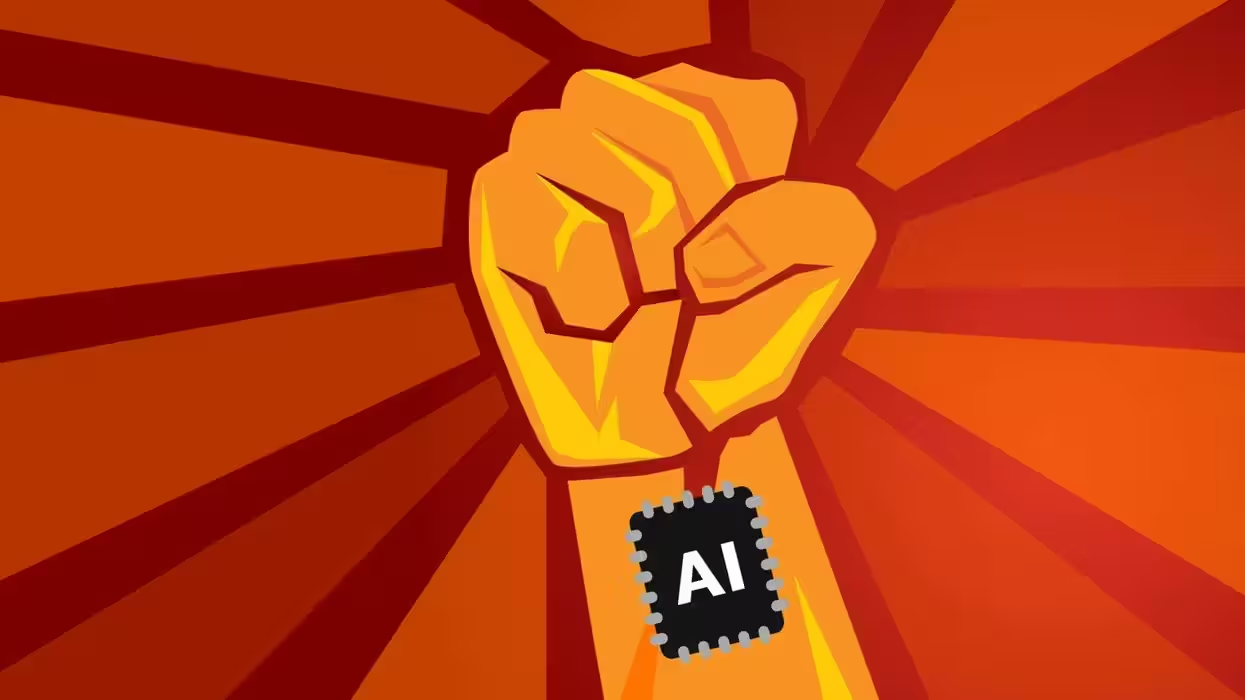
© 2025 Blaze Media LLC. All rights reserved.
Occupy Black Friday' Organizer 'Screaming Head' Is Given a Chance to Explain the Boycott
November 25, 2011
"The overarching point is that the 1% need to see that they depend on the 99%, not the other way around."
Recently, The Blaze has been covering “Occupy Black Friday,” an initiative by the “99%” to protest major retailers, disrupt credit card usage, and possibly rattle the markets.
Of course, it’s all being done in the name of “income inequality” and as an answer to “corporate greed.”
[Editor’s note: Although it has become repetitious to point these things out, it should be noted that the Occupy organizers who put together the mega-retail boycott did so by blogging on a computer assembled in a factory, sold through a massive chain, and by using an Internet connection provided by, yes, a major corporation.]
Well, for Blaze readers who wanted to know more about "Occupy Black Friday" and the reasoning behind it, today is your lucky day.
Writers at Business Insider had the opportunity to speak with one of the organizers of "Occupy Black Friday" and the interview was, well, "interesting" (to say the least).
Although the interviewee withheld his name (Business Insider refers to him as “Screaming Head”), he was not shy about proclaiming his goals, his idea of how the economy should work, and his long-term plans to battle "income inequality."
“With its goal of hitting the 1% where it hurts—‘in the wallet’—Screaming Head feels confident that in creating eye-catching signs that convince consumers to forgo one of the biggest shopping days of the year, he'll spark a discourse and motivate mega-retailers like Target and Walmart to question pandering to Wall Street stockholders who keep putting the wrong politicians in office,” writes Business Insider.
Here’s the exclusive interview:
Business Insider: What inspired you to launch the Occupy Black Friday movement?Screaming Head: I've been interested in (Occupy Wall Street) pretty much ever since its inception. I've been watching it on the news. But I wanted to do my part and so I've been blogging about it and other politics current events in general.
This one was focused on Black Friday just because a definite point where people can express some economic solidarity in the movement is important; that's where consumers can affect political change.
BI: Be honest, will Occupy Black Friday make the day more hellish?
SH: If people would sit back and look at it, it's going to be a nightmare anyway. You see all these fight videos and people fighting over the newest toy this year. The reason that I had a post for a publicly traded large retail chains is because those are the firms and businesses connected to credit card companies who definitely have a vested interest in putting forth the consumerism that has hurt this economy.
Even Small Business Saturday is sponsored by Amex. That motive is definitely not altruistic. (Credit card issuers) want people to spend. There has to be some sort of resistance to that. The time to do it is on Black Friday because (retailer's) eyes are on the numbers.
I have gotten a lot of opposition saying, "Why are you attacking retailers, they're not the focus." But (retailers are) connected to credit companies and consumer spending that's gotten everybody in trouble. Consumer debt is also a huge problem, along with housing and student loans. Retailers need to recognize that they have a political responsibility to their consumers as well as their stockholders.
BI: What is your takeaway message, and why focus on Black Friday in particular?
The overarching point is that the 1% need to see that they depend on the 99%, not the other way around.
They have to put their money in the banks before the banker has something to leverage.
Black Friday is just the point at which all eyes are going to be on the retail sector to see how it does and that is going to have major implications when all these companies do their reporting on the fourth quarter. It's also around the time when the elections start heating up. Retailers should think a little harder about their responsibilities come election time.
If everybody boycotted Walmart on January 22 or some random date, it might not even be noticed. A one-day protest is not going to get anybody fired. It's not going to kill revenues, but it is going to send messages.
BI: Do you have a negative view of Black Friday itself?
It can be fun and I don't have any opinion of the day itself. It's like saying I'm against Halloween because your teeth will rot out. It can be a fun day if people are responsible about what they're doing.
But it all plays into (stockholders') culture of pushing the retail stores they're invested in to do well the next quarter.
Credit card companies don't care about putting consumer into debt and jacking up interest rates, either.
BI: What is the retailer's role in all this, specifically?
They've donated over a million to democratic candidates, pushed for health care in retailers overall, but it was only because the attention was focused on them and now they have to take on the cost of giving all their employees health care. Of course they're going to try to make all their competitors do the same thing.
We just have to show them, I think, that we're going to push them on this way. But they're not going to do it unless they're forced to and that starts with the economic solidarity from the consumer.
If you vote with your dollar as a group, then retailers will be more likely to support who you support. Because as a whole (retailers are) known for flip-flopping, they go with political winners. Whichever part they think is going to be in power, that's who they donate to.
BI: Could you elaborate more on the consumer's role?
Well, it comes down to spending money in your community. If big change like Walmart comes in, the consumer can make the choice to choose where his or her dollar goes. He or she has to make a politically-informed choice to spend at the right retailer.
I hope Occupy Black Friday does bring some kind of reflection to the consumer that, yes, we can buy local.
There are long-term benefits to supporting the community and it completely is the consumer's responsibility for his or her long-term and economic political health. That said, I am not an anti-capitalist at all.
BI: How do you envision Occupy Black Friday taking place?
I'd hope that every community flashes a big projector like they did earlier last week, but I don't think that's going to happen. Hopefully, the Occupy Black Friday protesters will not be spending and will be letting the retailers know they're not spending. Hopefully there will be some signs in front of the stores informing the public what the actual meaning of this is.
We don't want to put all of our money in big retail and never see it again because it flies up to stockholders and to political parties that we don't like. That is the message.
BI: How do you expect consumers to react to Occupy Black Friday in Alabama?
We definitely have to raise a little more awareness out here, but I think if we can have some conversation because we have some wonderful signs out there or something to get them going like, "Oh, OK this isn't some kind of crazy hippy movement that I saw in New York. These people here work and go to my church."
If you get people's families out here to talk to people who don't agree, they'll at least be open to thinking about it.
It ideally would be a lot of people having dialogues in front of these retail stores about why it's going on and not just a New York or big metropolitan thing. why the Bible Belt should be taking note of this too.
BI: Do you feel the Bible Belt is taking note?
Some people are, yes. There are definitely others besides me who've taken an interest in the Occupy Wall Street movement and agree with it.
BI: How does one go about creating a movement like Occupy Black Friday?
You can't just make a website and let sit it there, it's got to be active. I dedicate about an hour to mine. I'll take an hour to research and put up my blog post and another hour just marketing it to try to get people to catch on.
When you get enough people moving in the same direction, that's how it starts.
Want to leave a tip?
We answer to you. Help keep our content free of advertisers and big tech censorship by leaving a tip today.
Want to join the conversation?
Already a subscriber?
more stories
Sign up for the Blaze newsletter
By signing up, you agree to our Privacy Policy and Terms of Use, and agree to receive content that may sometimes include advertisements. You may opt out at any time.
Related Content
© 2025 Blaze Media LLC. All rights reserved.
Get the stories that matter most delivered directly to your inbox.
By signing up, you agree to our Privacy Policy and Terms of Use, and agree to receive content that may sometimes include advertisements. You may opt out at any time.






